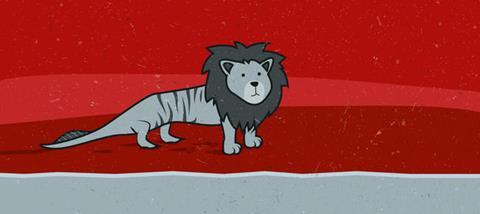Wherever they stand on the debate, all Christians can praise God for the process of evolution, says our resident theologian David Instone-Brewer.

The robots are taking over. Well, not quite…but they are getting increasingly clever. How so? It is because developers have recently started building evolutionary mechanisms into robot software.
Random changes are allowed to deliberately occur in their programming, which can be deleted if they are useless. But if any tiny improvement is detected, the change is adopted and randomly changed further. As the process is repeated, more improvements are gradually made. All this occurs without human help, and some such robots have even invented a simple language for speaking to each other.
This evolutionary programming is what frightened Stephen Hawking recently when he warned that artificial intelligence might spell the end of humanity. Evolution is the most powerful type of design available…and we didn’t invent it. God did.
ALL CHRISTIANS BELIEVE IN EVOLUTION
Christians who reject the theory of evolution by random mutation and natural selection over millions of years may be surprised, or even dismayed, to discover that in doing so they actually believe in a much faster form of evolution by a different method. But this is good news, because it means that all Christians can agree to praise God for the process of evolution – an amazing aspect of creation.
THE REAL DISPUTE IS NOT ABOUT WHETHER SPECIES CAN CHANGE OR NOT
Noah’s ark could only have carried thousands of species at the most, and not the millions we find on the planet today. Therefore young-earth believers conclude that ‘kinds’ in Genesis (see 1:24 and 6:20) are not ‘species’ but something similar to a biologist’s ‘genus’ – such as the genus Felidae which includes lions, cheetahs and domestic cats. This means that just one pair of toads would produce natterjack toads, giant cane toads, and the 160 or so other species of toad that exist today.
So there’s no disagreement among Christians that new species can develop over time. The main differences we have are about the speed and the process by which these changes occur. Young-earth believers reject the mechanism of mutation – the minor, random, genetic changes – which, when filtered by natural selection, result in isolated populations becoming gradually different from each other. Instead, they argue that the ‘kinds’ God created already contained all the genes that were needed for later differentiation.
SPEED AND PROCESS OF EVOLUTION
Whatever the mechanism is, we all accept that genetic changes are happening. We know that modern wheats are nothing like the grass plants they came from, and farmers understand that selecting seeds from the strongest plants will produce a superior crop next year. Similarly, everyone can understand that modern antelopes are fast because they are all descended from those antelopes that didn’t fall behind in the chase and get eaten. The real dispute is not about whether species can change or not, but by how much, and how fast – and, of course, whether or not to call the mechanism ‘evolution’.
However we define it, what can’t be denied is that the process produces all kinds of unique and fascinating characteristics. Peacocks look glorious because peahens pick the suitor with the best plumage. Homing pigeons can find their way back home so well because they are descended from those who got back first and started mating.
To me, this kind of process illustrates the intelligence behind the design of evolution. Evolution is nature’s in-built ability to produce new designs in response to new needs and opportunities. It is much more powerful and flexible than a fixed blueprint. It is an amazing aspect of God’s creation.
SCIENCE CANNOT EXPLAIN OUR ORIGINS
One-week creationists and billion-year creationists also agree on something else: that the origin of life is unexplained by science. Actually, all scientists agree with this, although most would say that partial explanations exist and a detailed explanation will be found. However, many experts (including Richard Dawkins) conclude that the origin of life is so improbable that it will never be repeated.
If we want to avoid a God-of-the-gaps position (where we only give God the credit for something when there is a gap in our knowledge), perhaps we should keep from ascribing merely the origin of life to God while attributing the rest of life’s development to evolution. Rather, we should recognise that Genesis ascribes the whole process to God, including the powerful design feature we call evolution.
GOD OF THE WHOLE SHOW
After instigating the evolutionary process, God didn’t merely sit back and watch it unfold. The verbs used in Genesis 1 hint that he intervened on at least three specific occasions. The chapter repeatedly says that God ‘made’ things (Hebrew ashah, to make something from something), which could indicate that he used a natural process. But on three occasions it says God ‘created’ (Hebrew bara, to bring something entirely new into existence, in verses 1, 21 and 27).
This suggests that God intervened in a special way at the creation of matter (v1), the creation of animals (v25) and the creation of humans (v27). And this is what we might expect. If the origin of life is as improbable as Richard Dawkins thinks, we shouldn’t be surprised that God had to intervene in a special way at this point. And if the human mind and spirit are as different from animals as the Bible implies, we would also expect a creative act at that point.
Creation wasn’t the end of God’s hands-on work. The Bible tells us that he also intervenes with miracles and revelations, and he constantly communicates personally with his people. However, the fact that only a few things are regarded as miracles in the Bible implies that most of what happens on earth is due to the natural processes that God has built into his creation.
I praise God for evolution, which I regard as an amazing aspect of his wonderful creation. It is an awesome process, invented by an awesome God, which results in the constantly adapting variety of our world. And if God used that process to craft my body, then I’m proud to be a result of it.





































